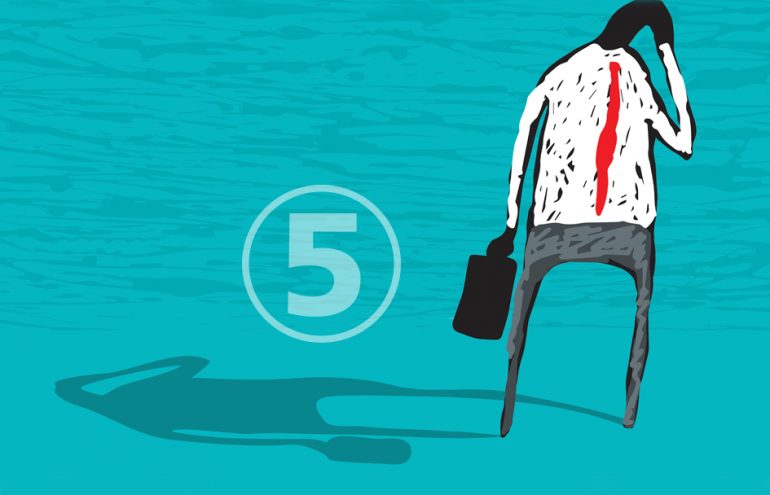There’s no denying it: Lawyers have the highest behavioral impairment rate of any profession. Research has shown it. It is spotlighted in the media, as in this New York Times feature about a lawyer who tragically spiraled into addiction behind closed doors. And the American Bar Association National Task Force on Lawyer Well-Being continues to release recommendations on ways the legal community can address it.
The same innate drive and problem-solving skills that make a good lawyer also enable some to present as “high-functioning” while they successfully conceal addiction for as long as decades. Meanwhile, as with any chronic, progressive disease, it worsens until the lawyer’s behavior and capabilities deteriorate.
The good news is once the problems are acknowledged, our community can join together to help remedy them.
Steps for At-Risk Lawyers
To prevent and manage behavioral impairment conditions, lawyers need to know these five steps.
1. Educate yourself on the risks. Many people don’t understand that depression and addiction are scientifically proven diseases requiring attention and treatment; they are not moral failings, character flaws or caused by a lack of self-discipline. Through CLE courses, books, in-house programs, and articles on and off the web, you can quickly become educated on the origin, symptoms and treatment of these conditions.
2. Find your work-life balance, and protect it. Most lawyers struggle with this, but it is essential to draw boundaries between your job and the rest of your life. Pursuing personal activities, exercise, good nutrition, robust relationships, adequate sleep, relaxation and time away from the 24/7 demands we face is the best preventive measure against the impairments and stress resulting from imbalance.
3. Self-monitor for warning signs. Those in the early stages of addiction, depression or burnout often deny the problem. Pay attention to objective changes in your behavior and routines. Ask friends for feedback. Take self-tests. Talk to a therapist. Keeping a journal of daily activities and feelings can be a great reflective tool when evaluating your quality of life and any behavioral changes. Understand that addiction creates an unreliable “private logic” and focus on your actual negative behaviors.
4. Seek professional help if you believe you have a problem. Start by talking to a psychologist, psychiatrist, interventionist, recovery coach, addiction specialist, your lawyer assistance program or someone at a treatment facility. These professionals will arrange a clinical assessment for you. That assessment will also include recommendations for treating your condition. Solutions may range from individual or group therapy to medications to residential treatment.
5. Don’t let fear of professional repercussions keep you from treatment. This is surrendering to the stigma. Getting better requires action — and if you do not proceed, you will lose everything. You may need to take a leave for treatment. You may have back-to-work issues involving your recovery that should be discussed with your firm. It may be that your firm or this profession is not for you and your long-term health. All that matters is that you become well and halt the predictable decline that will occur if you do not confront these matters sooner rather than later.
I’ve discussed these exact challenges with the top law firms in the country, and have seen many success stories. The suggestions here are derived from evidence-based practices and if followed can create a fulfilling personal life and successful career.
Related Articles
- Depression: A Lawyer Pandemic: Interview With Dan Lukasik by Ruth Carter
- Cautionary Tales of Personal Burnout by Megan Zavieh
- Knock Out Burnout by Sheila Blackford
- Five Ways for Law Firms to Support Health and Wellness by Jamie Spannhake
Subscribe to Attorney at Work
Get really good ideas every day: Subscribe to the Daily Dispatch and Weekly Wrap (it’s free). Follow us on Twitter @attnyatwork.
Illustration ©iStockPhoto.com

















